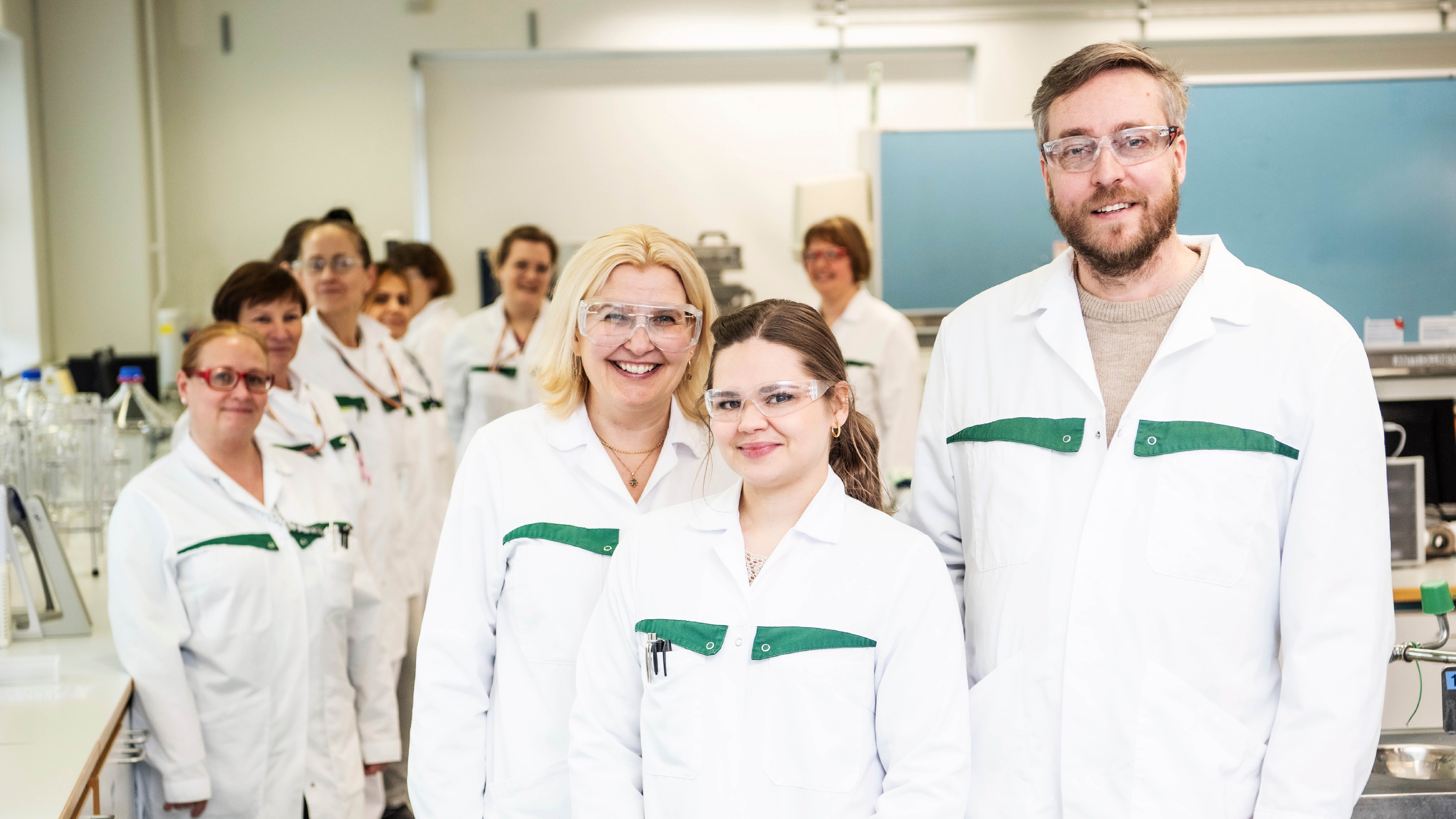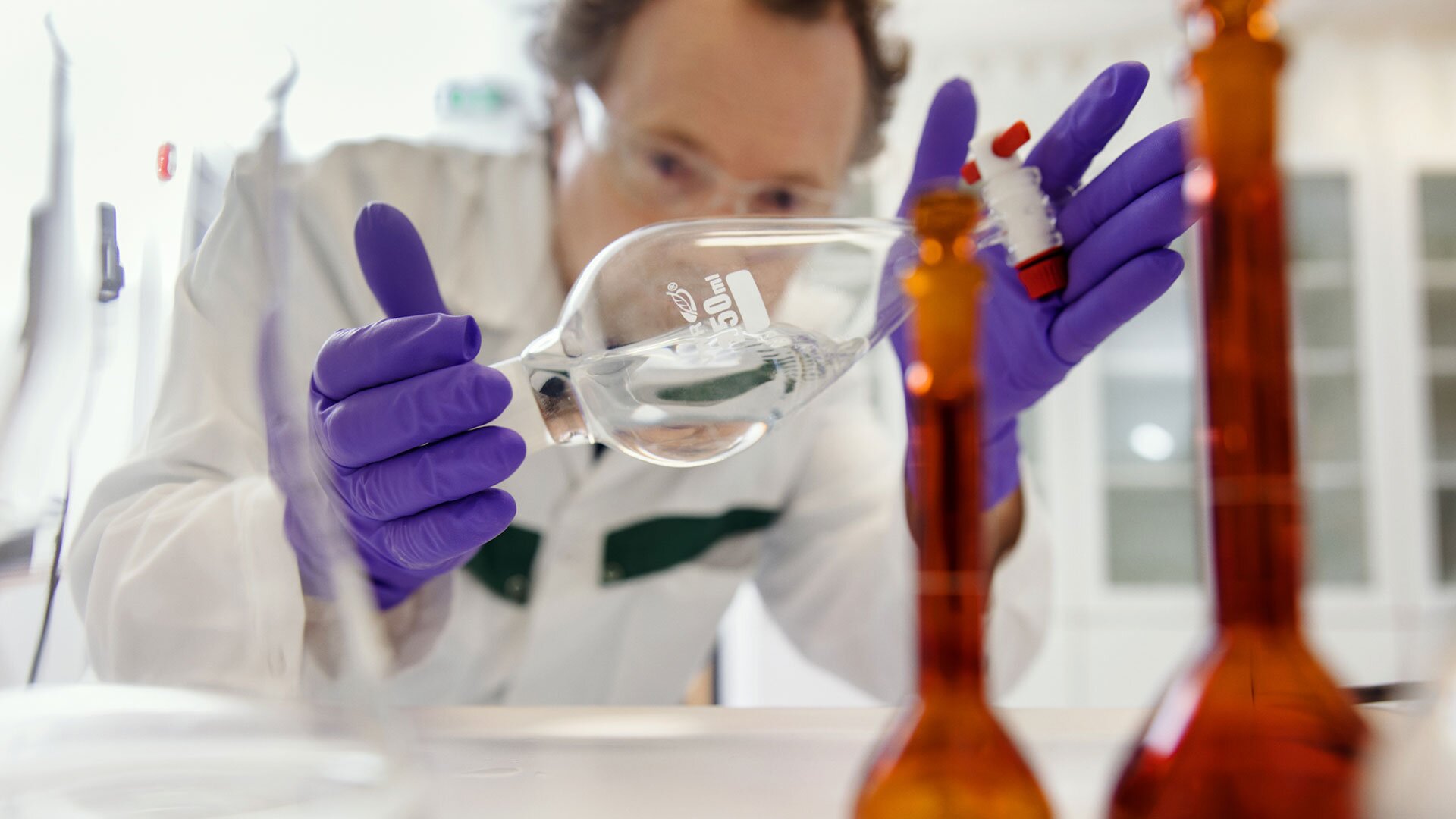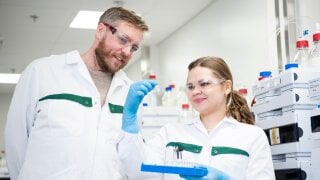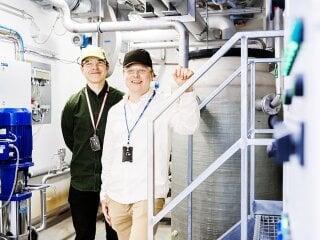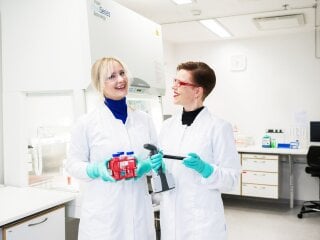“Quality control ensures that Orion's products are available on the market consistently and reliably. We act as gatekeepers at the beginning and the end of the production process, ensuring that both the raw materials and the products are as promised,” says Maija Blomquist, QC Manager, Materials and Gels & Ointments.
She is responsible for the Chemical Quality Control laboratory in Turku. The Quality Control unit also operates in Espoo and Salo.
The laboratory in Turku analyses samples of raw materials and active pharmaceutical ingredients, certain packaging materials, and creams and gels. The tasks also include, for example, monitoring the cleanliness of production equipment and facilities, assisting production with problem solving and testing the shelf life of products.
Dozens of techniques, thousands of methods – and over 60 experts
The Quality Control laboratory in Turku alone uses dozens of analytical techniques and thousands of analytical methods – they are all needed because Orion has a broad repertoire of products.
“In the pharmaceutical industry, quality control is much more precise and varied than in many other industries,” says Blomquist.
In total, more than 60 analytical experts work in three teams in the laboratory. Laboratory technicians make up the biggest group. “We analyse samples using different methods and make sure the properties are what they should be,” says Salla Vuolamo, QC Associate.
“In addition to our basic work, we also provide training in the use of equipment and ensure occupational safety, for example. Lab technicians can also be key users of analysis softwares and review analytical work.”
Experts guide the analysis
Chemistry experts work alongside the lab technicians. They are primarily responsible for supervising and checking the analysis work and for conducting anomaly investigations.
“Of course, there are many other tasks, such as supervisory responsibilities and participation in projects, that we share between us. In my own job, there is a lot of communication between production and quality assurance,” says Juha Järvenpää, QC Development Specialist. He works in a team that ensures that analytical methods are up-to-date and supports problem solving.
The Quality Control technical support team also works closely with the laboratory.
“We make sure the laboratory is operating, in other words, that the equipment and facilities are in good working order and the utilities – the electricity, water and gas – are working. We are also responsible for orders of equipment and consumables and we have software expertise,” says Kaisa Knuuttila, Technical Manager.
Quality control requires a meticulous attitude and the ability to change constantly
What kind of person would suit a quality control job in the laboratory of a pharmaceutical plant?
“You have to be meticulous and understand that we have strict rules. Sometimes we work under pressure, when a medicine is already needed on the market or a raw material is needed for production. Problem solving provides challenges but is also fascinating,” say Järvenpää and Blomquist.
“You must also have the ability to learn, because you will be faced with new things and changes all the time – this is not suitable for someone who likes routines. You also need a good attitude to occupational safety: a wide range of chemicals are handled at the laboratory, so safe working practices are essential.”
The educational backgrounds of our laboratory employees range from laboratory technicians to PhDs, laboratory analysts, engineers from universities of applied sciences, MScs and MAs – who all have chemistry in common. The diverse range of activities means that the job descriptions can be tailored to meet the needs of the employees.
“I have been given responsibilities according to my own interests and have shaped my lab technician job description to suit me,” says Vuolamo.
Järvenpää also appreciates the fact that you can do a variety of jobs in the same workplace: “It's great that we have the chance to follow different career paths and are given opportunities for advancement.”
Kindness, cooperation and helpful colleagues are the essence of the job
Although the job requires a wide range of skills, it is not necessary to master everything immediately: new employees receive 4–6 months of induction, on average. The Quality Control laboratory offers not only a way to enter the pharmaceutical industry, but also the opportunity to become part of a close-knit team where no colleague is left on their own.
“We have an open-minded and friendly atmosphere: you can always ask questions and you will always receive help – and we always think of what’s best for the other person,” says Vuolamo.
The fact that there is no doubt about the meaningfulness of the work is also creates a good atmosphere.
“We all have a common goal: patient safety, which means that the patient gets exactly the product they are supposed to get,” says Blomquist.
